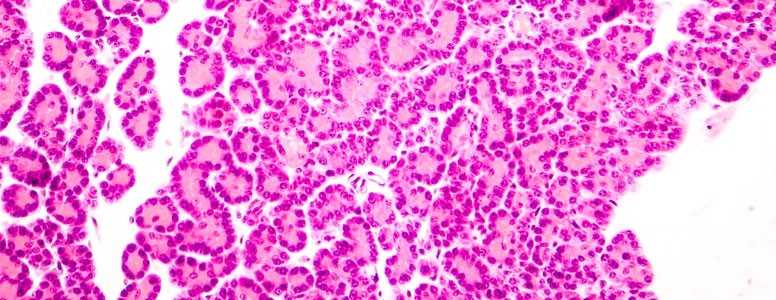American researchers have developed beta cell imitators that have some of the key characteristics of living pancreatic cells and show good responsiveness to blood glucose in mice.
Once optimised to mimic real cells closely enough, these synthetic cells could one day render insulin use superfluous in people with type 1 diabetes and those with type 2 diabetes requiring it.
In their quest to build reliable beta cells, the difficulty for researchers lay in reproducing cellular reactions for the delivery of insulin as faithfully as possible. To that aim, they recreated a natural secretion process known as vesicle fusion.
The cells are also modelled after real beta cells in that they have a two-layered membrane. Inside the cells are cell-like bubbles called vesicles that contain insulin and have a coating that changes chemically when blood sugar levels rise.
The series of chemical changes that occur following a rise in blood sugars in the outer layer of the vesicle leads to its fusion with the artificial beta cell’s inner membrane, which then prompts the release of insulin.
The research team at the University of North Carolina Health Care and NC State successfully tested the cells in lab-dish experiments and obtained positive results when administering them to mice that lacked beta cells.
The blood sugar levels of the animals normalised within an hour after a single injection of the synthetic beta cells and the improvements in glucose control persisted for up to five days, according to the researchers.
In humans, the smart beta cells could be inserted subcutaneously and replaced every few days, or be delivered via a disposable skin patch that the researchers are still currently working on.
The researchers now plan to refine the biological networks that operate inside the smart beta cells and perform further preclinical tests in larger animal models before moving to human testing.
Separately, they are also working on a smart insulin patch that will work without cells to sense and respond to changes in blood glucose.
If researchers were able to produce their artificial beta cells on a large scale, this would eliminate the need for donor cells in replacement therapies and solve many problems associated with transplants.
The findings were published in the journal Nature Chemical Biology.
What's new on the forum? ⭐️
Get our free newsletters
Stay up to date with the latest news, research and breakthroughs.





